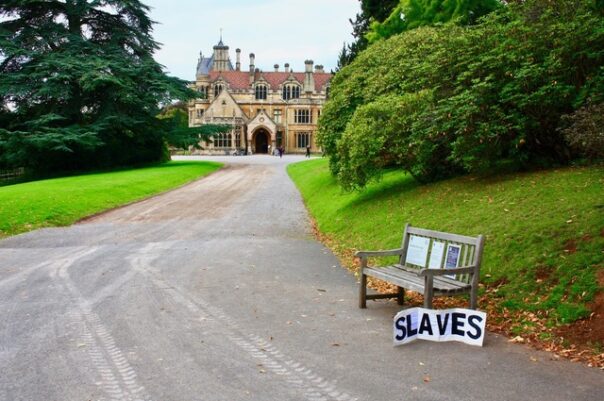
This article first appeared on the BRHG Facebook page in October 2019. It is published here as a tribute to Steve Philbey who passed away in August 2022.
The connection between indentured labourers in the Chinese city of Amoy (now called Xiamen) in the 1840s having the letter C burnt into their ears and a Somerset man who was for a time the richest merchant in England illuminates a story that has been overshadowed by Bristol’s involvement in the slave trade and the fortunes made by the likes of Edward Colston.
The roots of the story can be found at the turn of the nineteenth century when an ever-growing population was putting enormous strains on crop production and the reliance on bone meal to counter the exhaustion of the soil. Demand was such that sources of bone included the battle fields of Waterloo and Austerlitz. The London Observer of 1822 carried this report:
It is now ascertained beyond a doubt by actual experiment upon an extensive scale, that a dead soldier is a most valuable article of commerce.
The paper noted that there was no reason to believe that grave robbers were limiting themselves to battlefields:
for aught known to the contrary the good farmers of Yorkshire are, in a great measure indebted to the bones of their children for their daily bread.
One answer to the inefficiency of this form of soil fertilisation was found in the introduction of Guano into Europe by the German scientist Alexander Von Humboldt who had discovered that Andean Indians had been using it as a very productive method of crop enhancement for centuries. Guano is the excrement of Cormorants and Boobys and their deposits build up over time to mountains over 150 feet high. The main deposits were to be found in the Chincho Islands off the coast of Peru.
Soon after its discovery a huge trade was underway between Peru and Europe – in 1845 Britain imported 219,764 tons. To begin with the miners were slaves and convicts but after a time it was found to be more productive to use indentured Chinese labourers. The reason for the burning of the letter C into their ears was so as to deceive them into thinking that they were going to the riches of the Californian gold fields rather than to the hellish conditions of the Guano mines. To dehumanise them their masters referred to them as Zhugai which meant ‘little pigs’. Some 100,000 Zhugai were transported to Peru and conditions en route can be compared to that of the transatlantic slave trade – perhaps one in eight died. Revolts were common and at least five bloodily succeeded. For those that survived working conditions were horrendous. An English engineer, Alexander Duffield, who visited the islands, described them thus:
No hell has ever been conceived by the Hebrew, the Irish, the Italian, or even the Scotch mind for appeasing the anger and satisfying the vengeance of their awful Gods, that can be equalled in the fierceness of the heat, the horror of the stink, and the damnation of those compelled to labour there, to a deposit of Peruvian Guano when being shovelled into ships!
Those who did not fulfil their daily quotas, typically four to five tons a day, were whipped or set upon by dogs.
The British monopoly on the Guano trade was gained by the merchant William Gibbs in 1842. Helped by the ever-expanding railway system, having monopoly control of the market and forcing farmers to pay his ever-increasing prices, Gibbs became, as mentioned, the richest merchant in England. Much of this wealth went into his Gothic Revival mansion on the Tyntesfield Estate some eight miles from Bristol.
The Saint-Just Mob visited the parasite’s pile recently and left the pictured subvertiser. There is a photographic exhibition on show there that contrasts the riches made by the Guano trade with the hell of the conditions of the workers. This is re-produced on the photographer’s website at olli.hellmann.net – well worth a look, for with the photographs is a very good materialist text.
Thanks to the book by Charles C. Mann called 1493 – how Europe’s discovery of the Americas revolutionised trade, Ecology and Life on Earth.





There are hardly any of your pamphlets in BRISTOL RECORD OFFICE which causes great frustration. Would it be possible to replenish stocks? Many thanks..